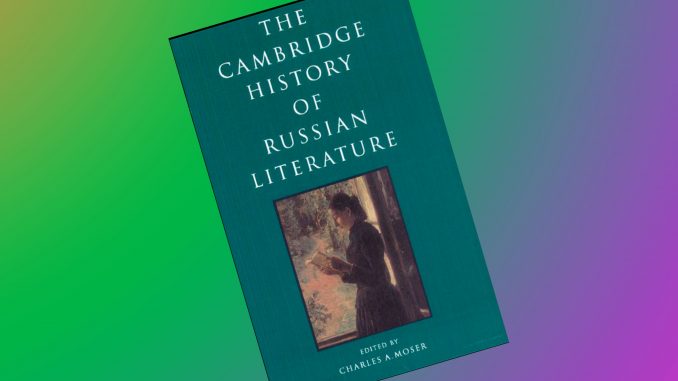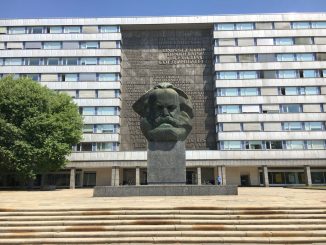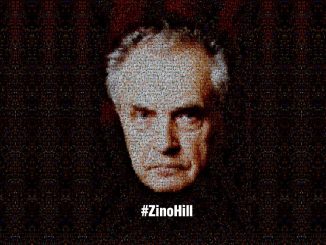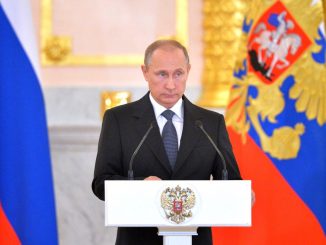
The Cambridge history of Russian literature / edited by Charles A. Moser. — Rev. ed. Cambridge University Press, 2008. pp.520-594
By Geoffrey Hosking
The twentieth century: In search of new ways, 1953-80
* * *
The period from 1953 to 1980 saw Russian literature develop in many different directions both inside and outside the Soviet Union. With Stalin’s death the intense cultural pressures which the guardians of literature had exerted after the Second World War diminished, and with some hesitation literature sought to strike out in unfamiliar channels during the period of the so-called thaw, a name adopted from Ercnburg’s timely novel of the day. The thaw continued through the eventual accession of Nikita Khrushchev to power, but there were clearly strict limits to it, as the controversy over Pasternak’s Doctor Zhivago and the award of the Nobel Prize to him in 1958 showed: Pasternak finally rejected the award, and his novel was not published in the Soviet Union for nearly thirty years. And yet the process of cultural liberalization after Stalin has never been totally reversed.
* * *
The possibilities and dangers exemplified in Solzhenitsyn’s career set the scene for the characteristic literary drama of the 1970s: a writer discovered and first published during the “thaw” gradually finds his literary explorations taking him beyond the point at which his senior literary colleagues will tolerate him and offer him publishing facilities. Sometimes the decision to ban a writer seems to be made not for purely literary reasons, but because he is involved in the civil rights movement or even for motives of personal enmity. Squeezed out of official Soviet literature, the banned writer resorts to samizdat, and then, voluntarily or involuntarily, to tamizdat (publishing “over there”), as foreign publication came to be known. This makes him a celebrity abroad and an object of scandal at home, as a result of which he attracts increasing attention from the procuracy and KGB and ends up either being arrested on a trumped up criminal charge, or else being exiled from the country. Some writers chose the latter fate under the threat of the former. Among the writers who left the country after such developments were Andrey Sinyavsky (after his imprisonment), Joseph Brodsky, Naum Korzhavin, Vladimir Maksimov, Victor Nekrasov, Alexander Zinovev, Vladimir Voy novich, Georgy Vladimov and Vasily Aksyonov.
Their arrival in the west engendered a whole “third wave” of Russian “emigre” literature – though the word “emigre” is im precise, since the concerns of these writers remained Soviet ones, and their links with the homeland were much closer than those of earlier generations of exiles. The focus of much of their activity was in literary journals. The principal ones were Continent (Kon tinent), founded in 1974 by Vladimir Maksimov in Frankfurt am Main, which adopted a neo-Slavophile political line but was broad-minded in its choice of authors; We and Our Epoch ( Vremya i my), founded in Tel Aviv by Victor Perelman in 1976 to give a voice to the rich Russian Jewish tradition; and Syntax (Sintaksis), founded in 1978 in Paris as a largely criticaljournal by Sinyavsky, who had broken away from Continent with the intention of creating a more liberal and cosmopolitan forum.
* * *
By the early 1980s there was thus one Russian literature in two homelands. Much of it, on both sides of the divide, was still motivated by the agenda set in the immediate post-Stalin years, that of revealing the truth about the past and of using the material of Soviet reality to achieve a fuller understanding of man’s nature.
* * *
Perhaps the last of the major Russian writers for whom the Stalinist tradition was a formative – albeit largely negative – influence is Alexander Zinovev (I 922- ) , who now lives in West Germany. The Great Future of Stalinist myth is an overwhelm ingly absent presence in his first literary work, as can be sensed from its title, Yawning Heights (Ziyayushchie vysoty, 1976). The combination of oxymoron and bathos is entirely characteristic of his writing, and indeed is virtually its structural foundation.
For twenty-two years Zinovev was a member of the Institute of Philosophy, and his contributions to the field of mathematical logic were internationally known. All the same, he was never entirely trusted by the authorities because he had established a record of plain speaking going back to his teenage years before the war. As he was gradually eased out of his distinguished posts and deprived of his students, he found himself with the leisure to record his impressions of the society from which he was becoming increasingly alienated. The result was Yawning Heights, a ram bling, surrealistic presentation of that society in a variety of ten uously connected episodes. In a sense it is the absolute negation of the socialist realist novel. If the Great Future no longer exists, then the institutions of Soviet society lose their meaning, or rather acquire a negative and siniste.r meaning. Soviet society is haunted by the absence of those “magnificent prospects” which Zhdanov used to insist were an indispensable part of Soviet culture: that is why the distant heights no longer “gleam” (siyayut) but “gape” or “yawn” (ziyayut).
The chaotic structure of Zinovev’s work stems naturally from that basic premise. Time has become fragmented. Plot lines are intertwined in a confusing way. The sense of place is similarly deranged: the setting, Ibansk, sometimes appears to cover the whole world, at others to be merely a muddy extended village where everyone knows everyone else. Language is disordered: high and low styles alternate unpredictably, and ordinary narrative in the authorial voice is juxtaposed with theoretical discourse, doggerel verse and idle gossip. Even human beings have lost their unambiguous individuality: they are all called Ibanov (an amalgam of the commonest Russian surname with the commonest Russian obscenity) and are otherwise designated by such appellations as Thinker, Chatterer, Slanderer, Schizophrenic and so on. The narrator fragments himself among these various generic personalities, sharing their outlook and language in turn. We cannot even assign a genre to this work. “Novel” seems an inappropriate term for such a ragbag of miscellaneous items, especially since at times the author seems to aspire to write a scientific treatise.
Zinovev’s purpose in writing this work and numerous later ones is illuminated by a comment of the night watchman who is the principal character of his Notes of a Night Watchman (Zapiski noclmogo storozlia, 1979): “I used to think that there existed scientific studies of Ibanism [Zinovev’s usual synonym for Commun ism], but that lbanism itself was still far in the future. In fact it’s the other way round. Full-scale lbanism has existed for ages […] But there are no scientific studies of it at all.” Strictly speaking, Zinovev’s only full-scale treatise on the subject is Tl1e Reality of Communism (Kommunizm kak realnost, 1981), but even this work is broken up into discrete and often quite brief sections not neces sarily logically interconnected, and indeed sometimes in open tension with one another. Zinovev operates by a kind of intellectual pointillisme, building up his arguments in a series of snap shots. This weakens his claim to scientific accuracy, but does not necessarily detract from the literary power of his writing.
Zinovev offers a useful corrective to traditional western “totali tarian” analyses of the Soviet Union, which suffer from over concentration on the upper reaches of the system. Zinovev’s focus on the “primary collective” – the individual office, workshop, apartment block or scientific institute – enables us, as it were, to readjust our sights and to appreciate from below the human aspects of a system which otherwise appears inhuman. Perhaps Zinovev’s most controversial assertion is that the political structure is appropriate to the people it dominates and enjoys their overwhelming support. Each primary collective provides the basic essentials of a social existence, including entitlement to housing and other welfare benefits, and a modest level of pay. Any other function the collective may have (such as the production of industrial goods or the education of children) is secondary. Everyone must belong to a primary collective, since otherwise one may be accused of parasitism. And within the collective the talented and eccentric will soon be either reduced to the general level of mediocrity or violently extruded. The secret police is thus in Zinovev’s view only a kind of concentrated essence of the envious mistrust with which gifted individuals are regarded by their colleagues.
Zinovev has expressed this view in a dozen or so works, some of enormous length, and written in the same monotonously formless manner. His approach is both unhistorical and unscientific, and he might be dismissed altogether were it not for his powerful satirical talent. The reader who perseveres with Zinovev’s works will find that he has distilled the essence of Soviet society – at least in the Brezhnev era – in a manner not found elsewhere. His account, for example, of the Ibanskian conquest of the world by the process of the Great Kissing – detente seen as a metaphorical extension of the bearhugs which socialist dignitaries give one another on arrival at airports – has positively Rabelaisian gusto and aptness. He faithfully reflects a society which has lost its way, and in that sense his weaknesses are also his strengths.
* * *



